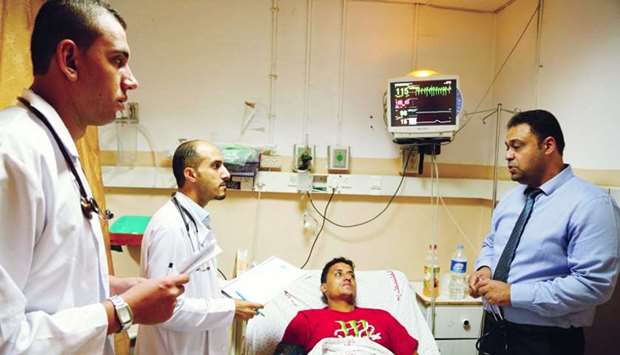In co-ordination with the Palestinian Ministry of Health, the QRCS mission in Gaza is implementing a plan to renovate and develop the Coronary Care Unit (CCU), providing "much-needed help for cardiac patients in the enclave", according to a press statement.
The director of Nasser Hospital, Dr Ayman al-Farra, said: "The complex is Gaza's second-largest health facility. Due to overpopulation, the number of cardiac patients in the southern parts of the Strip is steadily increasing. The premises are obsolete and need renovation and furnishing. The CCU and outpatient department have a capacity of six and 14 beds, respectively. This is not enough and we have often to accommodate inpatients at other departments."
"The available medical equipment is inadequate and outdated," Dr al-Farra added. "The new QRCS project is expected to upgrade cardiac services in the neighbouring districts. The capacity will be increased to 30 beds in both departments."
Also, these improvements would enhance co-ordination with the Cardiac Catheterisation Department of the European Gaza Hospital, reduce the costs of travel for treatment abroad and enable effective diagnosis of heart valve, arterial and other disorders.
Dr Akram Nassar, head of the QRCS mission in Gaza, said: "Under QRCS's plan to develop the healthcare sector in Gaza and fill in the gaps in human and financial resources, particularly in relation to chronic diseases, we are pursuing higher quality cardiac diagnostic, treatment and intensive care services."
Serving a population of more than 650,000, the Department of Cardiology at Nasser Hospital is the region's central cardiac service provider, with the only acute cardiac care unit among its peers. On an average, it receives 150-200 cases per month.

The new QRCS project involving Nasser Hospital is expected to upgrade cardiac services in the neighbouring districts
Qatar Red Crescent Society (QRCS) has announced that it has initiated a new project to support the government-run Nasser Medical Complex in Khan Yunis, southern Gaza Strip, at a cost of $284,000 (QR1,025,920).
